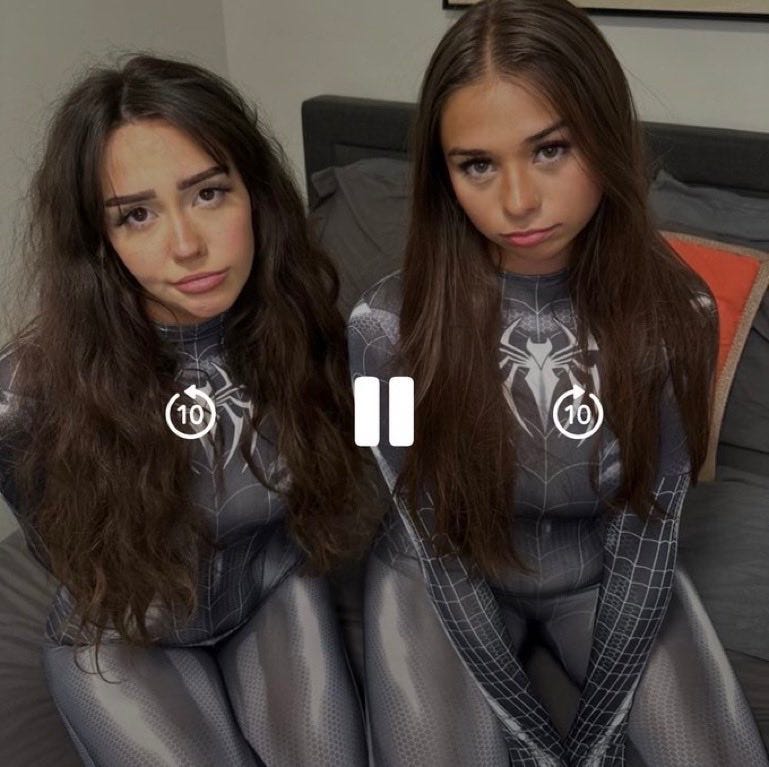Is the internet truly a free and open space for expression? The reality is far more complex, particularly when it comes to adult content. The proliferation of platforms like Erome, dedicated to sharing erotic photos and videos, raises crucial questions about online censorship, individual privacy, and the evolving landscape of digital sexuality.
Erome, a platform often described as a hub for user-generated adult content, boasts a global reach. Its stated purpose is to provide a space where individuals can freely share and consume erotic material. However, this seemingly straightforward premise opens a Pandora's Box of ethical and legal considerations. The platform's popularity, with thousands of users allegedly accessing it daily, highlights a significant demand for such content online, but also underscores the potential for misuse and exploitation. While proponents argue for the importance of sexual expression and freedom of speech, critics raise concerns about the potential for non-consensual material, the exploitation of minors, and the blurring lines between private expression and public consumption.
| Bio Data & Personal Information | Career & Professional Information |
|---|---|
| Name: Sophie Rain (This is a likely pseudonym; verifiable biographical information is extremely difficult to obtain due to the nature of the industry and the use of stage names.) | Profession: Adult film performer (Information regarding specific studios, contracts, and dates of activity is generally not publicly released due to privacy concerns and industry practices). |
| Date of Birth: Unavailable | Associated Platforms: Erome (and potentially others). It's important to note that verification of performer identities on these platforms can be challenging. |
| Place of Birth: Unavailable |
Learn more about pornography on Wikipedia.
Navigating this digital landscape requires a nuanced understanding of the complexities at play. The anonymity afforded by the internet can empower individuals to explore their sexuality, but it can also embolden malicious actors. Erome and similar platforms exist in a legal and ethical grey area, often operating just within the bounds of acceptable content, while constantly pushing those boundaries. The lack of robust verification processes raises questions about the authenticity of the content and the age and consent of those involved. The lines between artistic expression, personal exploration, and outright exploitation become increasingly blurred.
Furthermore, the proliferation of free, readily accessible pornography raises questions about its impact on societal perceptions of sex and relationships. Does it desensitize viewers? Does it contribute to unrealistic expectations? Does it promote healthy sexual communication or perpetuate harmful stereotypes? These questions remain subjects of ongoing debate among researchers, psychologists, and social commentators.
The very phrases used to describe Sophie Rain and her content "Sophie Rain photos & videos," "Sophie Rain fotos e vdeos," "Sophie Rain fotos y vdeos," highlight the global nature of this online phenomenon. The multiplicity of languages used in searches and on platforms like Erome speaks to the widespread accessibility and demand for this material.
The discussion surrounding platforms like Erome inevitably leads to considerations of free speech. Where do we draw the line between protecting individual expression and preventing harm? Is it possible to regulate these platforms effectively without impinging on fundamental rights? The legal frameworks governing online content are constantly evolving, struggling to keep pace with the rapid advancements in technology and the shifting societal norms around sexuality.
The comments and queries surrounding figures like Sophie Rain "Me or Sophie Rain?" "Everybody knows this famous slut right?" are indicative of the often-toxic discourse surrounding online pornography. The objectification and dehumanization of performers are rampant, further complicating the conversation about ethics and responsibility.
While platforms like Erome offer a space for sexual expression, they also present a breeding ground for potential abuse. The lack of transparency and accountability makes it difficult to address issues such as revenge porn, non-consensual content, and the exploitation of vulnerable individuals. The ongoing debate surrounding the regulation and ethical implications of these platforms is crucial, and it demands a thoughtful, nuanced approach that balances the rights of individuals with the need to protect against harm.
The allure of free content, the anonymity of the internet, and the promise of sexual exploration converge on platforms like Erome, creating a complex and often-contradictory digital landscape. Understanding the nuances of this landscape, including its potential benefits and its inherent dangers, is crucial for navigating the evolving world of online sexuality.


